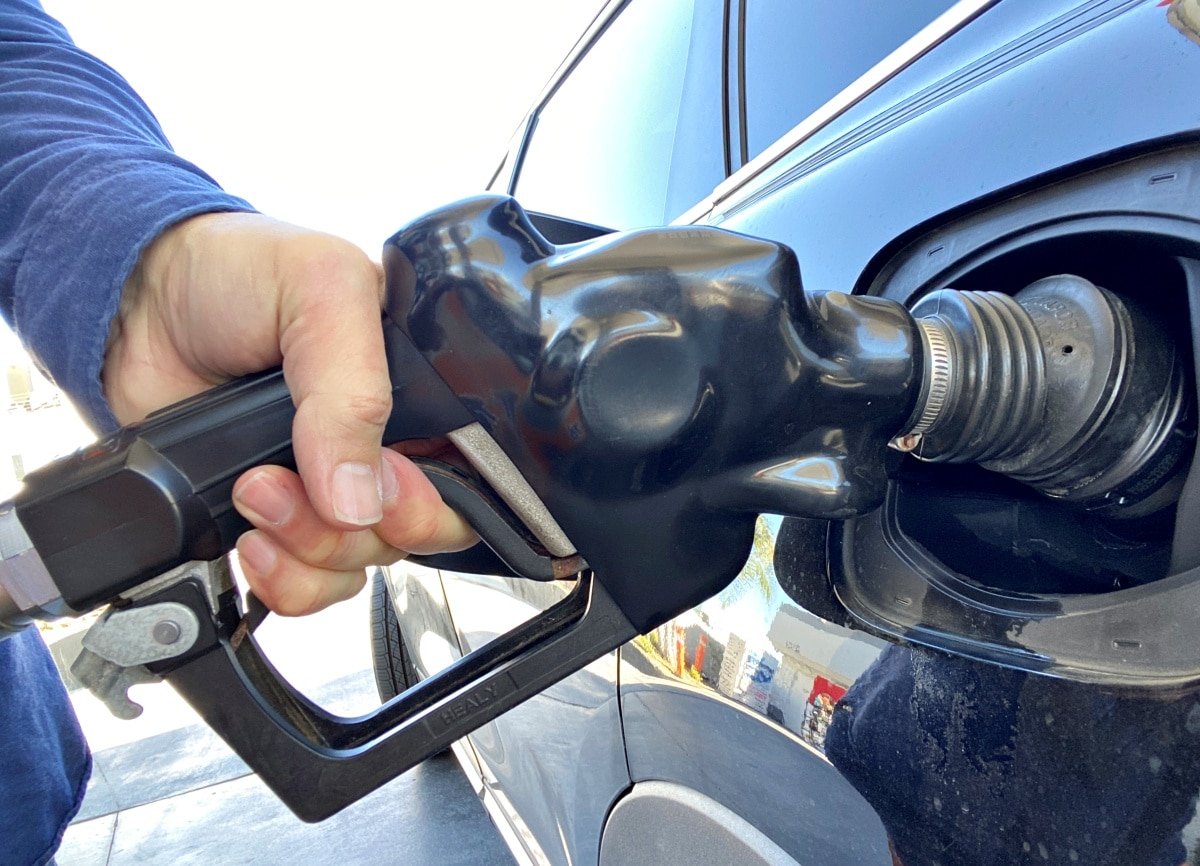Banks rarely offer extra money beyond the usual interest from savings accounts and CDs. However, a strategy to earn additional cash is by opening new checking and savings accounts to avail of one-time bank bonuses. These offers can provide a welcome financial boost. If you’re an existing customer with certain banks, you might qualify for an even more lucrative targeted promotion. But are these bank bonuses worth it, and does it make sense to switch banks for a bonus promotion?
For example, you can receive up to a $600 bonus with Chase checking accounts, CIT a safe and trustworthy online bank has some great APR offers too, and US Bank has a $400 offer.

How Bank Bonuses Work and Are They Worth It?
Opening a bank account might seem boring, but it’s a competitive business. Banks use your deposits to underwrite loans so your savings account balances can earn interest. Having a high account balance lets you qualify for “premium” bank features like free ATM withdrawals and wire transfers or a dedicated adviser.
As most checking accounts and savings accounts offer similar perks, banking bonuses can make it easier to find the best bank.
Most bank bonuses follow this pattern to offer bonus cash:
- Open a new account before the promotion deadline
- Deposit new money shortly after opening your account
- Maintain an average daily account balance for a specific number of days
- Receive your bonus cash within ten days of completing the necessary steps
Many bonuses require your new funds to arrive via direct deposit, such as an employer paycheck. But some offers let you transfer funds from an external account.
In addition to meeting the deposit requirements, some checking account bonuses may have you complete a minimum number of debit card purchases during the promotion period.
Also, checking accounts and savings account bonus earnings are taxable income, just like your monthly interest income. Credit card rewards are not taxable as the IRS treats them as “purchase rebates” instead. Consider this when determining if the bank bonus is worth it for you.
Do You Qualify for a Bank Bonus?
Like credit card signup bonuses, you may not qualify for every bank bonus. Here are some of the terms and conditions to research before opening an account on a whim.
New Bank Customers Only
First, these bonuses are usually for new bank members. If the bank offers multiple checking account products and you have one of their checking products, you may not qualify for the public offer. But you might be eligible for one of their savings account offers if you keep your life savings at another bank.
If you’re a loyal customer, you might receive a targeted bonus offer for a new account. These offers tend to have a higher cash value than most public offers trying to attract new members.
Returning members might also be able to qualify for a repeat bonus. For example, you may not be eligible for a Chase checking account bonus if you closed a Chase checking account in the last 90 days, or if your previous account had a negative balance.
Must Live in a Qualifying State
When browsing the current bank promotions, you will likely enter your zip code to see your local offers. If you don’t live somewhere with local bank branches, you may not be able to open an account.
It’s also common for banks to have you complete the account opening process at a local branch. You can request a bonus code online but must redeem it in-branch.
This factor won’t make a bank bonus worth it if there are no banks close to you.
Minimum Balance Requirements
Each offer has different tasks you must complete to earn the bonus cash. High-end accounts with more account perks tend to have higher minimum qualifying deposits and average account balances during the promotion.
Accounts with lower monthly service fees tend to have laxer deposits and balance minimums. However, the bonus cash you can earn is usually lower. For instance, you might earn $200 instead of $700. But some money can be better than nothing at all.
If you cannot achieve the minimum, you should avoid these bonuses. Verify you can make the correct type of qualifying deposits. A qualifying direct deposit might be a paycheck, pension, or benefits from an employer or government agency. Peer-to-peer transfers such as Zelle® or ACH transfers from another bank may not count.
Account Closure Penalties
Closing your account shortly after earning your bonus is tempting to avoid monthly service fees. Most offers require you to keep the account open for a specific number of days after you receive the bonus. Otherwise, you forfeit the entire bonus if you close your account early. Credit cards have similar policies as you must keep your account open past the first card anniversary to avoid a penalty.
Each bank is different, but you may have to keep your account open for at least six months after receiving your bonus. Strive to meet the minimum balance to waive the monthly service fee to avoid “signup bonus erosion.”
The Different Types of Bank Bonuses
Bank bonus offers are account-specific. It’s possible to earn multiple bonuses at once with some banks.
Checking Accounts
The most common bonus is for opening a new personal checking account. The smallest bonuses usually start at $100, but the premium checking accounts may offer up to $500. The Chase Total Checking offer is currently $300 for example.
New Chase checking customers enjoy a $300 bonus when they open a Chase Total Checking® account and make direct deposits totaling $500 or more within 90 days of coupon enrollment.
Other benefits of this account include access to Chase Overdraft Assist℠ and fraud protection, including Zero Liability Protection, fraud monitoring, and the ability to lock your card. The Chase Mobile banking app and access to many banks and ATMs are convenient benefits.
There is no minimum balance needed to open the account. However, there is a $12 monthly service fee. But, it can be waived to $0 with one of the following, each monthly statement period:
- Electronic deposits made into this account totaling $500 or more, such as payments from payroll providers or government benefit providers, by using (i) the ACH network, (ii) the Real Time Payment or FedNow℠ network, (iii) third party services that facilitate payments to your debit card using the Visa® or Mastercard® network
- OR a balance at the beginning of each day of $1,500 or more in this account
- OR an average beginning day balance of $5,000 or more in any combination of this account and linked qualifying Chase checking, savings, and other balances.
Pay attention to the direct deposit minimums and the average daily account balance you must maintain.
Related: Best checking account bonuses
Savings Accounts
New savings accounts can also earn bonuses. However, the minimum deposits and balance requirements are relatively high. You may have to deposit at least $10,000 in cash to get a $200 bonus cash.
For instance, opening a CIT Bank Savings Builder High Yield Savings Account lets you earn one of the best savings account interest rates. Our CIT Bank review has more information about this popular online bank.
Business Banking
Some banks also give one-time bonuses for new small business checking accounts. For example, you might consider a Chase Business Complete Banking℠ account as it is one of the top Chase business accounts.
Earn up to $500 when you open a Chase Business Complete Banking® account. For new Chase business checking customers with qualifying activities.
There are also multiple ways to waive the Monthly Service Fee, including maintaining a minimum daily balance or purchases on your Chase Ink® Business credit card, some of the best Chase business credit cards available.
Bonus: U.S. Bank Platinum Business Money Market Account
The U.S. Bank Platinum Business Money Market Account is another option worth considering. It comes with the ability to set aside excess cash from a checking account while getting paid the highest interest rate for your business. Additionally, you can link your savings to your U.S. Bank checking.
If you maintain a minimum balance of $10,000, you won’t have to pay the $15 monthly maintenance fee. You’ll also earn higher rates of interest the higher the balance. You will need a $100 minimum opening deposit.
Other features of the U.S. Bank Platinum Business Money Market Account include the following:
- ATM access
- Accrues interest daily and pays interest monthly
- FDIC Insurance up to $250,000
- Free U.S. Bank Internet Banking
Plus, your account can be linked to your U.S. Bank business checking account for overdraft protection.
Receive up to a 3.50% bonus interest rate
Receive a bonus interest rate up to 3.50% from the account opening date when you open a new U.S. Bank Platinum Business Money Market Account and complete qualifying activities, subject to certain terms and limitations. Member FDIC.
Standard variable interest rates are determined at the bank’s discretion and are subject to change at any time without notice. Speak to a banker for current deposit rates, disclosures on rates, compounding and crediting and other balance information. The minimum deposit required to open a Platinum Business Money Market account is $100. $15 maintenance fee per statement cycle waived with $10,000 minimum daily balance.
The special interest rate is limited to Business Platinum Money Market account only. Open a new U.S. Bank Platinum Business Money Market Account and receive the special interest rate from the account opening date. Special interest rates may change at any time without notice.
The special interest rate will be 3.50% when your account balance tier is between $50,000 to $2,999,999.99.
The special interest rate does not apply for Platinum Business Money Market accounts with balances outside of the balance tier stated above. The full account balance will earn the standard variable interest rate in effect at that time until the account balance falls within the special rate balance tier.
Interest and Fee Information: You must maintain the minimum balance needed for each tier to earn the special interest rate. Interest will be compounded daily and credited to your account monthly at the end of the statement cycle. Fees could reduce earnings on the account. Other restrictions may apply.
When Bank Bonuses Are Worth It?
Consider pursuing eligible bank bonus offers in these instances:
- Can achieve the deposit, account balance, and debit purchase minimums
- The bonus amount is worth more than monthly service fees (if you cannot waive them)
- Do you plan on keeping the account open for the long-term
- Want local branch access at that bank
When to Avoid Bank Bonuses?
Avoiding a bank signup bonus makes sense in these instances:
- Cannot waive the high monthly service fees
- Want to close the account early
- Achieving the offer deposit and purchase terms requires too much effort
- Do not want to pay taxes on your bonus cash
Summary of Are Bank Account Bonuses Worth It?
Are bank bonuses worth it? For one, bank bonuses are an easy way to put some extra cash into your pocket by simply sending your paycheck to a new bank account. These bonuses are an additional incentive to switch banks. But don’t forget to compare your online banking options as the ongoing benefits and naturally fee-free accounts can have more residual value. And with an online account, you don’t have to worry about not qualifying due to a lack of branches near you.
For example, you can receive up to a $600 bonus with Chase checking accounts, CIT a trustworthy online bank has some great APR offers too, and US Bank has a $1,000 offer.
FAQS
What banks offer new account bonuses?
Most bank bonuses come from brick-and-mortar banks with physical branches in your town. “Big banks” with nationwide branch access like Chase Bank and Citibank offer bonuses. Regional banks with a handful of branches in a small radius may also offer rewards.
These brick-and-mortar banks tend to offer bonus offers regularly:
- Bank of America
- Chase Bank
- Citibank
- HSBC
- Huntington Bank
- U.S. Bank
- Wells Fargo
- TD Bank
- PNC Bank
- SunTrust Bank
Physical banks usually offer banking bonuses for personal checking accounts. You might also see offers for savings and even business checking accounts. The most valuable bonuses have you open a new personal checking and savings account at the same time.
Online-only banks are less likely than brick-and-mortar to offer bonuses. Despite the lack of signup bonuses, online banks are more likely to provide more free perks and never charge a monthly service fee. For instance, Chime and CIT Bank are two options you may want to look at.
Should I switch banks for a bonus?
Switching banks to get a bank bonus can be worth it if you can pay fewer monthly fees have better account perks and have more convenient local branch access.
You shouldn’t switch banks if earning the bonus takes too much time, or if you lose a significant portion to bank fees. Sometimes, “free money” isn’t as free as you think. Your time can be more valuable than money.
If you have a lot of spare cash or multiple income streams, you might be able to open a new checking account or savings account without closing your current bank account. Having a high cash balance means you can enjoy banking privileges at multiple banks.
It’s not worth switching banks if you have to close the account and lose your relationship with a great bank. Long-time relationships can potentially make it easier to qualify for the best rewards credit cards that are hard to get if you don’t have an existing bank account.
Related articles:




How do you compute the rate of return, if a bonus is worth it?
It really depends on the individual and their banking needs.